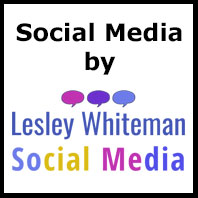Tai Chi:
Tai Chi movement principles implications and practice – I have sought to describe a way of augmenting training where immersive physical practice is not available or where time is limited, or perhaps where culturally what may be considered intimate contact is not acceptable. In this case then we can support our physical Tai Chi practice with frequent attention throughout the day in our normal tasks.
Speculation on origins of Tai Chi – Actually, this article is more a speculation on way that things accumulate organically over long periods – the way we humans pass things down the generations as cultural knowledge. Which may help in both understanding and learning Tai Chi – especially if you find it confusing and start asking questions like “why?”.
Tai Chi – martial arts culture for beginners – some issues raised for students and teachers as observed from personal experience – It is my hope that the following will help “first timers” better understand and enjoy their early Tai Chi classes.
The Dynamics of a Tai Chi Class – what Beginners can expect – A question that I am often asked is: “What will your Tai Chi class be like?” – this is a very important question if you are thinking about joining a Tai Chi class for the first time, because the group may be a little different to your expectations. Let me set your mind at rest, though, and give you some ideas to help make your Tai Chi a really enjoyable experience.
Attending a Martial Arts (Tai Chi) class for beginners – further thoughts – Attending a martial arts class may well be very different to other activities you have undertaken and it should be remembered that Tai Chi is a martial art – and I believe it is extremely important that this link is maintained. This is part of their paradox which I have written about elsewhere. So the following are a few personal thoughts drawn from 45 years’ experience, which may forewarn and help a beginner to navigate and benefit from a class.
Some Tai Chi Notes – Various notes on Tai Chi, including real world philosophy, practice and study of Tai Chi, and neural development.
Take one for the team – invest in loss – Here’s an idea – think of yourself as a committee – and your body and your mind and your spirit as sub-committees – then work on strengthening the weakest part and developing good connectivity.
Guidelines for practising Tai Chi and Tai Chi Exercises – important points for beginners – some ideas for beginners coming to Tai Chi classes for the first time – or just getting into it. They may also be particularly useful where health and mobility are significant issues
The History of Tai Chi – The story of Tai Chi from its beginnings in the 1600s to the present day
A Western View of Chi – some thoughts on what sense we might make of “Chi” from a western science perspective – an effort to translate between Chinese and English cultures. More recent thoughts on Chi also at the end of Tai Chi – important behaviours
Beginners Guide to the Development of Internal Feeling in Tai Chi – thoughts on internal feeling/awareness which is so important to progress in Tai Chi
Question and answer session – extracts from a conversation with a friend covering ideas about martial arts in general and Tai Chi in particular
Chi and Body mapping and muscle power – further thoughts on a western interpretation of Chi and how it is of value in Tai Chi.
My trip to the home of Tai Chi 2013 – Ian went on a 2 week trip to China – to visit the Chen village of Chenjiagou in Henan province and to train with Master Chen Xiaowang for a week. The group went via Beijing and Zhengzhou – taking in tourist time in Beijing, at the Shaolin Temple and the Buddhist Longmen Caves on the Li river.
Tai Chi for Health:
Movement for the Middle Aged – Ian discusses how Tai Chi can help with movement as you get older and less mobile.
A Tai Chi Approach – Learning how to look after yourself – learn how to look after yourself using Tai Chi.
Thoughts on Tai Chi Movement – research has shown that most development comes from the physical act of doing the exercises and that this development can be very significantly augmented by thinking about the movement, i.e. visualising and feeling.
The Health/Martial Arts Link – being used to an external art for many years it intrigued me how Tai Chi works as a practice for health and a martial arts – actually it is quite straightforward.
Tai Chi for a good back – Tai Chi focuses a great deal on the back and its use – what can we learn for daily life?
How Tai Chi links to Western models of medicine, biology, neuro-science, quantum physics, psychology etc – really unfinished notes – but they give the gist of how and where links and comparisons may be made so as to improve a western understanding of this very Chinese art.
Levels of exercise – why not go all out? – Tai Chi is linked in the public mind with very slow movement and the appearance of ease – why do we do that? Why do we not go all out?
A few thoughts on meditation – a simple approach to meditation with a physical dimension
Tai Chi for Personal Development:
Martial Arts as a Philosophy? – Working notes on the place of Martial Arts for the individual and society
Half a lifetime in martial arts – some personal experiences of the wider territory covered over 38 years
Development of a Sword – thoughts on personal development using the metaphor of a sword
Fighting for Life – a broad look at martial arts from a personal perspective – some thoughts on their practice and their cultural aspects
Mindfulness in Tai Chi – mindfulness is core to Tai Chi and many if not all martial arts – especially those associated with Taoist or Buddhist ideas on meditation.
Feedback and Education in Tai Chi – feedback is essential in martial arts practice – especially in developing the skill of Tai Chi – but not so common in life?
Nobody ever said that a Zen Master had to be patient! – focused around the question – “what is a balanced human being?”
Physical awareness and non-verbal communication – how we differ in these aspects and where we meet them in life
The Martial Arts Path of Personal and Social Development – A piece containing thought provoking ideas and observations linking martial arts and life with a view to learning what goes on in life and why – and how we can develop to deal with it.
A few useful strategies – Not really martial arts or Tai Chi – but some hopefully useful strategies and observations drawing on some martial art approaches
Martial Arts Principles and Techniques in our Daily Lives – a description of how martial arts can inform our daily lives in a very positive way
Tai Chi for Martial Arts:
Tai Chi – important behaviours – what behaviours would be helpful in a physical conflict situation and how would they help?
Moving Across the Spectrum – An early piece written in a time of transition from Karate to Tai Chi and before I started Chen Style – or met my current teacher Karel Koskuba or his teacher Grandmaster Chen Xiaowang
Internal Time – when we are in stressed situations like a car crash time seems to slow – how do we do that? How can we use it?
Relaxation-Speed-Power-Flexibility – Some notes on Relaxation, Speed, Power, Flexibility – a Physical, Mental and Emotional Triangle looking at what we mean by these terms and how they are linked. This piece was written many years ago but I still believe is essentially correct and hopefully a useful piece of the jigsaw.
More to Martial Arts than just Technique – how do martial arts play across to daily life?
What Are Martial Arts Really About – the “way” of martial arts
Thoughts on Teaching and Learning Martial Arts – some of the problems involved in teaching and learning martial arts – and some ideas on dealing with them
Models for Internal Development and their Application in Martial Arts – An early piece – written when I was transitioning from Karate to Tai Chi and so perhaps useful also to readers in a similar situation.
Returning to Source – Cutting the Crap – the water runs clearest nearest the spring they say – it is at least worth going for a look!
Falls Prevention:
Managing getting old with Tai Chi – improving balance and flexibility, managing problems of ageing, learning to look after yourself, living in a declining body, taking care of mind and body, tai chi and social activity for mind and body, tai chi based natural mindful movement.
Considerations on Tai Chi in the role of Falls Prevention – a white paper on the planning of a Falls Prevention program and issues around it from a Tai Chi perspective
Tai Chi for Carers:
Tai Chi for Carers – a white paper explaining how basic tai chi exercises may be delivered to the community by a series of seminars aimed at carers.
Tai Chi for Carers Seminar Syllabus
Tai Chi for Sports:
Application of Tai Chi practice to other activities, e.g. golf, swimming, football, manual work etc – ” You can put Tai Chi into anything – but you can’t put anything into Tai Chi” – probably because if it was useful then Tai Chi people borrowed it a long time ago!
“Tai Chi for Golf” Whitepaper – ” How can Tai Chi improve your Golf?




